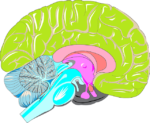 Recently I have seen posts to the effect it is demeaning to jurors to “appeal to the reptilian brain.” When we understand the reality of the reptilian brain and how it is thought to play a role in decision making we have a duty as advocates to recognize there is nothing wrong with advocacy that appeals to the reptilian part of the brain.
Recently I have seen posts to the effect it is demeaning to jurors to “appeal to the reptilian brain.” When we understand the reality of the reptilian brain and how it is thought to play a role in decision making we have a duty as advocates to recognize there is nothing wrong with advocacy that appeals to the reptilian part of the brain.
Appealing to the “reptilian brain” began as a Madison Avenue selling concept developed by Clotaire Rapaille a European psychologist. Mr. Rapaille initially studied autism in children. He theorized there are “code words” that lead to conduct. Finding a particular code word helped in treating an autistic child. Mr. Rapaille believes the “code” is within the reptilian brain, regardless of wheather a person is autistic.
From there Mr. Rapaille changed his career to help large corporations find their “code” to appeal to the reptilian brain of the consumer. He teaches “the reptile always wins.” This means final decisions are made subconsciously based on buried codes within the reptilian brain that Mr. Rapaille terms “the reptilian hot button.”
Exhibit A for Mr. Rapaille is the Hummer SUV. He explains the Hummer does not make logical sense as most people drive their vehicles on city streets. For an SUV Clotaire Rapaille explains the code is “domination.” Thus, the Hummer sells because it is the dominate vehicle on the road. This appeals to the reptilian “sense of safety” which is where the purchase decision is made as “the reptile always wins.”
From an advocacy standpoint it makes good sense to recognize what major corporations recognize and have used for years. That is the reptilian brain is a key component to decision making. Jurors like all of us seek safety and security. We all have the reptilian brain and we all dislike conduct that is dangerous.
In our system when the case gets to trial the dangerous conduct has already taken place. When the dangerous conduct effects or potentially effects all of us we naturally what to stop it from happening again. For jurors the only way to stop the conduct from happening again is through a money judgment. In our society a money judgment sends a message the dangerous conduct is unacceptable and must stop or not happen again.
There is nothing sinister about this reality. The lawyer for an injured plaintiff is not trying to sell a product. The lawyer is trying to accomplish justice. The lawyer has a duty to point out dangers to the jury. The jury has a civic duty to act through a money judgment of fair compensation. When this is done a twofold benefit to society occurs: Plaintiff receives fair compensation for injuries caused by the wrongdoer and the wrongdoer receives the message society does not accept the wrongful conduct.
In our next post we discuss the reality of the emotional subconscious part of our brain and how it impacts decisions.


 Jury consultants including David Ball have advocated appealing to “the reptilian brain” when presenting a case to the jury. I read David Ball’s books and consider him to be a high level jury consultant dedicated to advancing trial advocacy. I believe all serious trial lawyers read Ball and learn from him.
Jury consultants including David Ball have advocated appealing to “the reptilian brain” when presenting a case to the jury. I read David Ball’s books and consider him to be a high level jury consultant dedicated to advancing trial advocacy. I believe all serious trial lawyers read Ball and learn from him. What Marcus Aurelius learned from:
What Marcus Aurelius learned from: My first Thought of the Week theme is “Beginning.” As Plato said: “The Beginning is the most important part of the work.” (The Republic). To accomplish anything worthwhile we must begin by working toward what we want to accomplish. After we begin we must stay focused in the present at our highest level. It is the means that matter rather than the end. We cannot control how our effort will be received, but we can control giving our best effort. When we stay focused and do the best we are capable of doing we know we engage in the pursuit of excellence and this is what matters.
My first Thought of the Week theme is “Beginning.” As Plato said: “The Beginning is the most important part of the work.” (The Republic). To accomplish anything worthwhile we must begin by working toward what we want to accomplish. After we begin we must stay focused in the present at our highest level. It is the means that matter rather than the end. We cannot control how our effort will be received, but we can control giving our best effort. When we stay focused and do the best we are capable of doing we know we engage in the pursuit of excellence and this is what matters.
